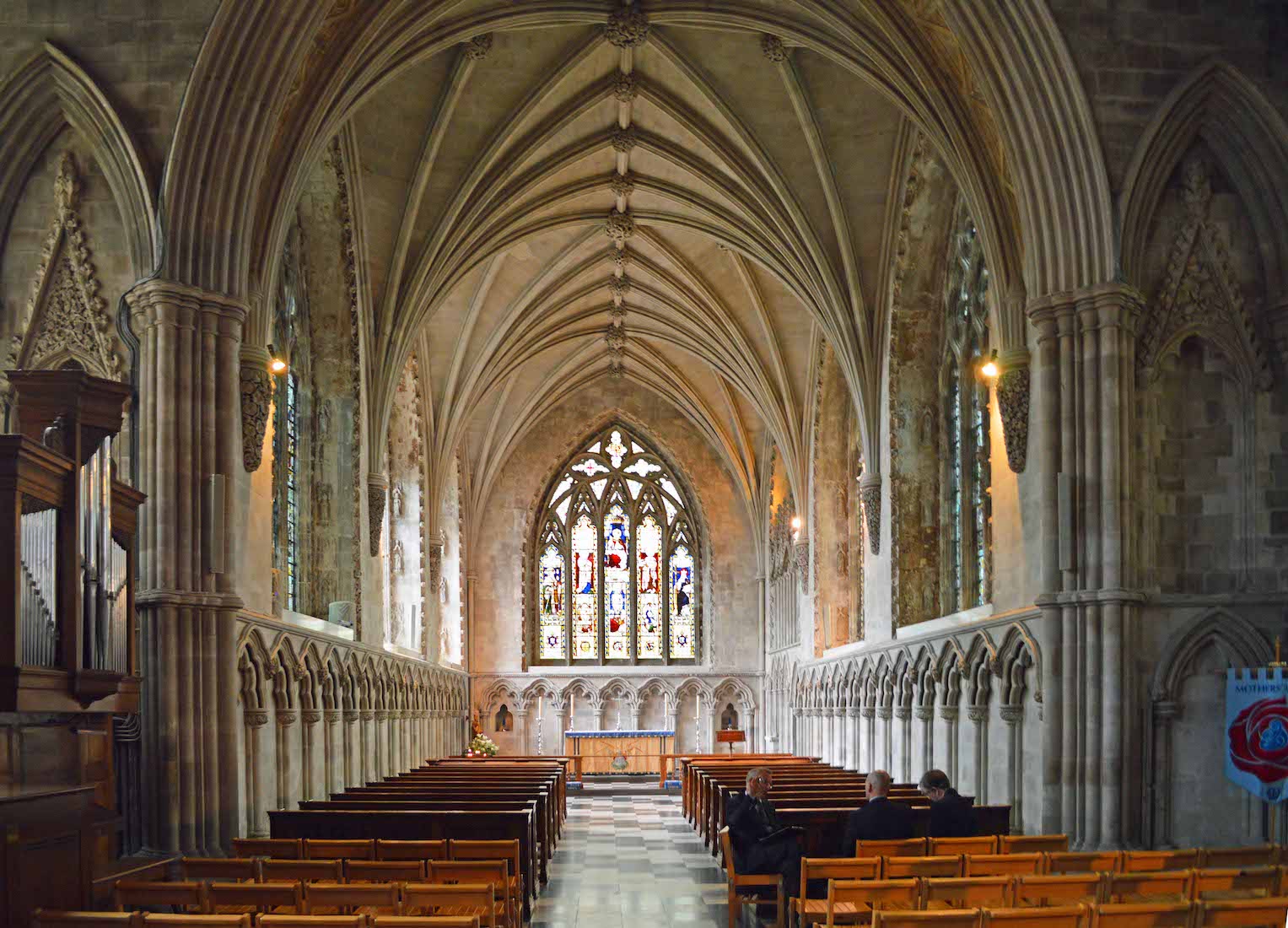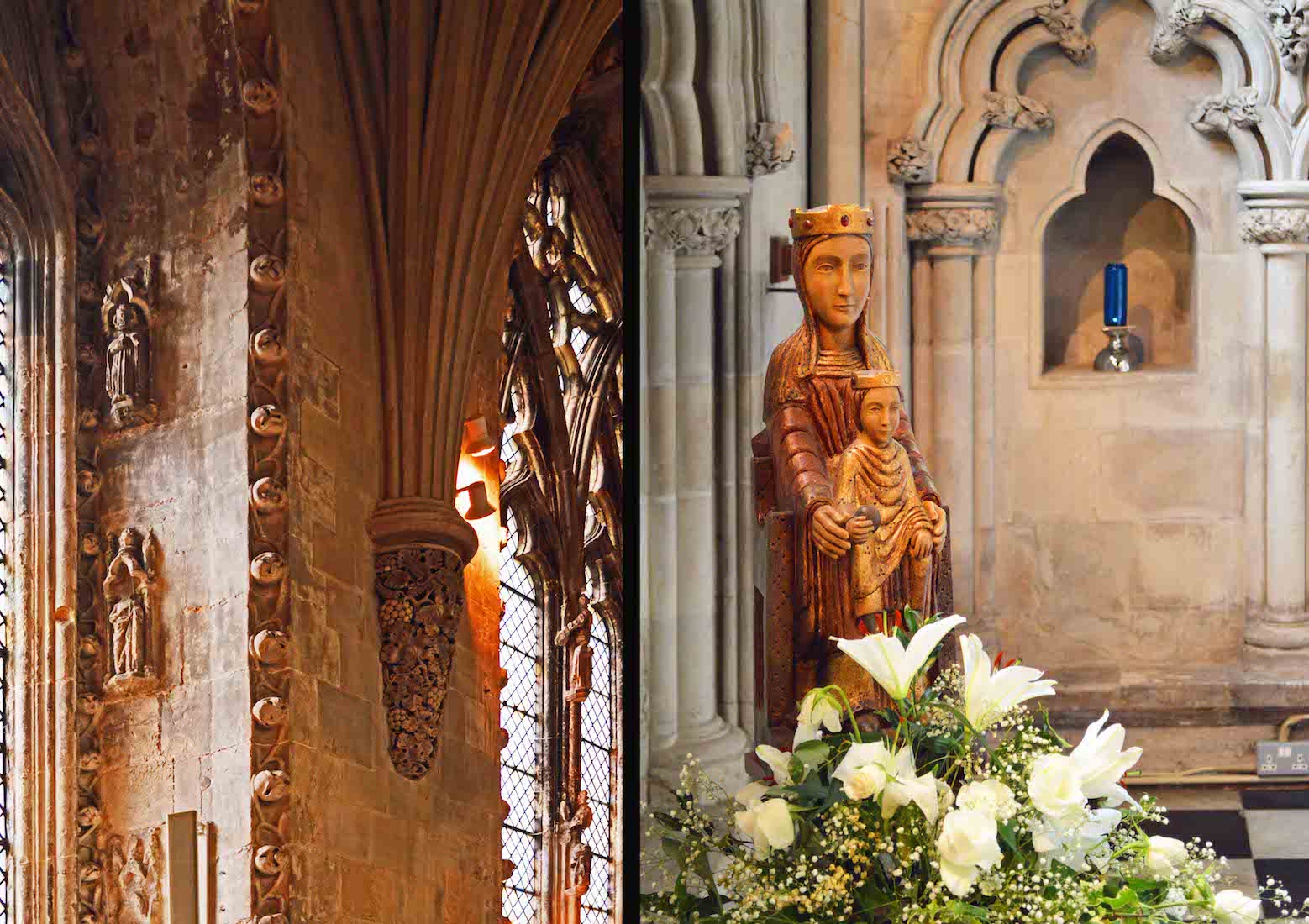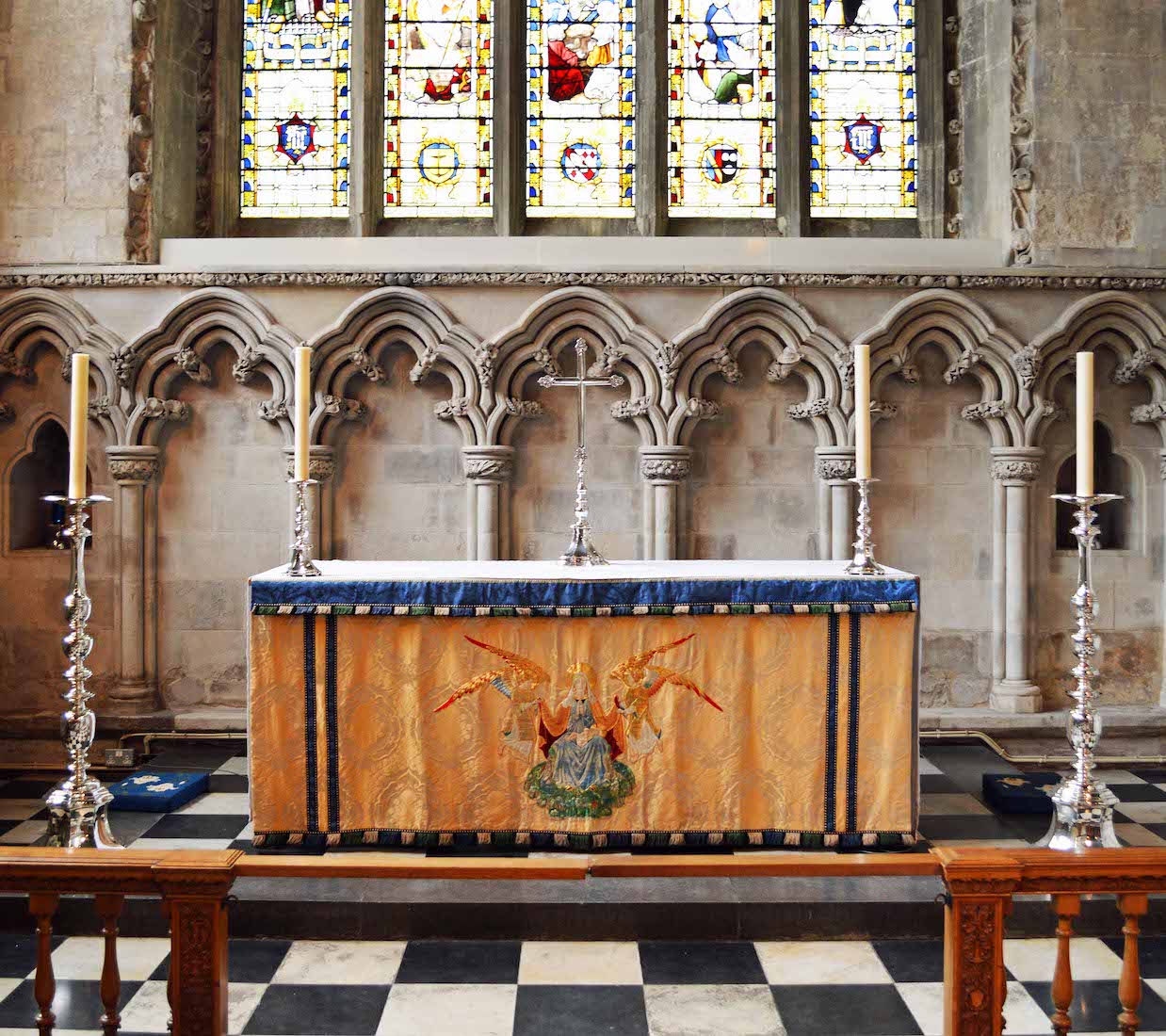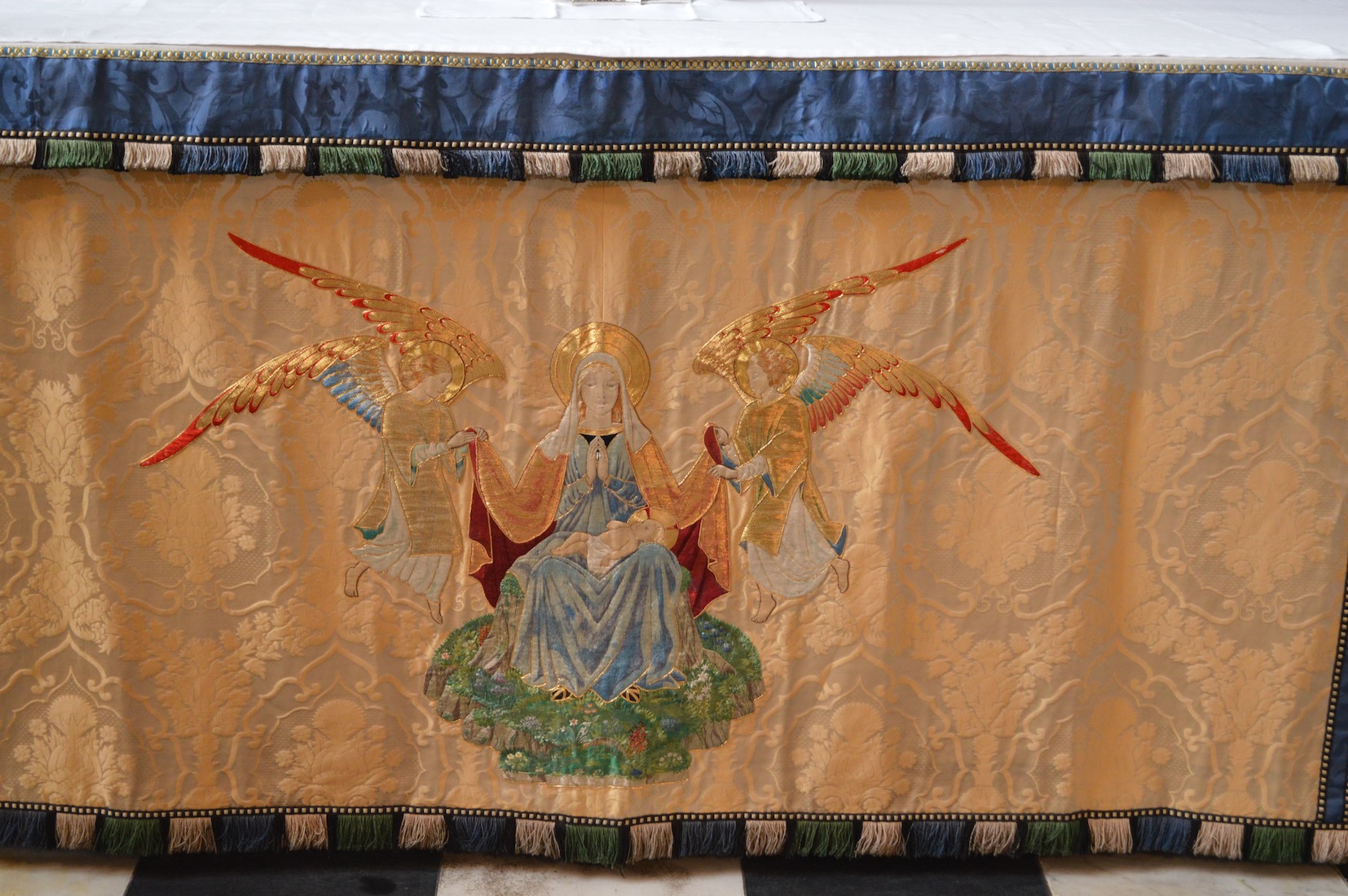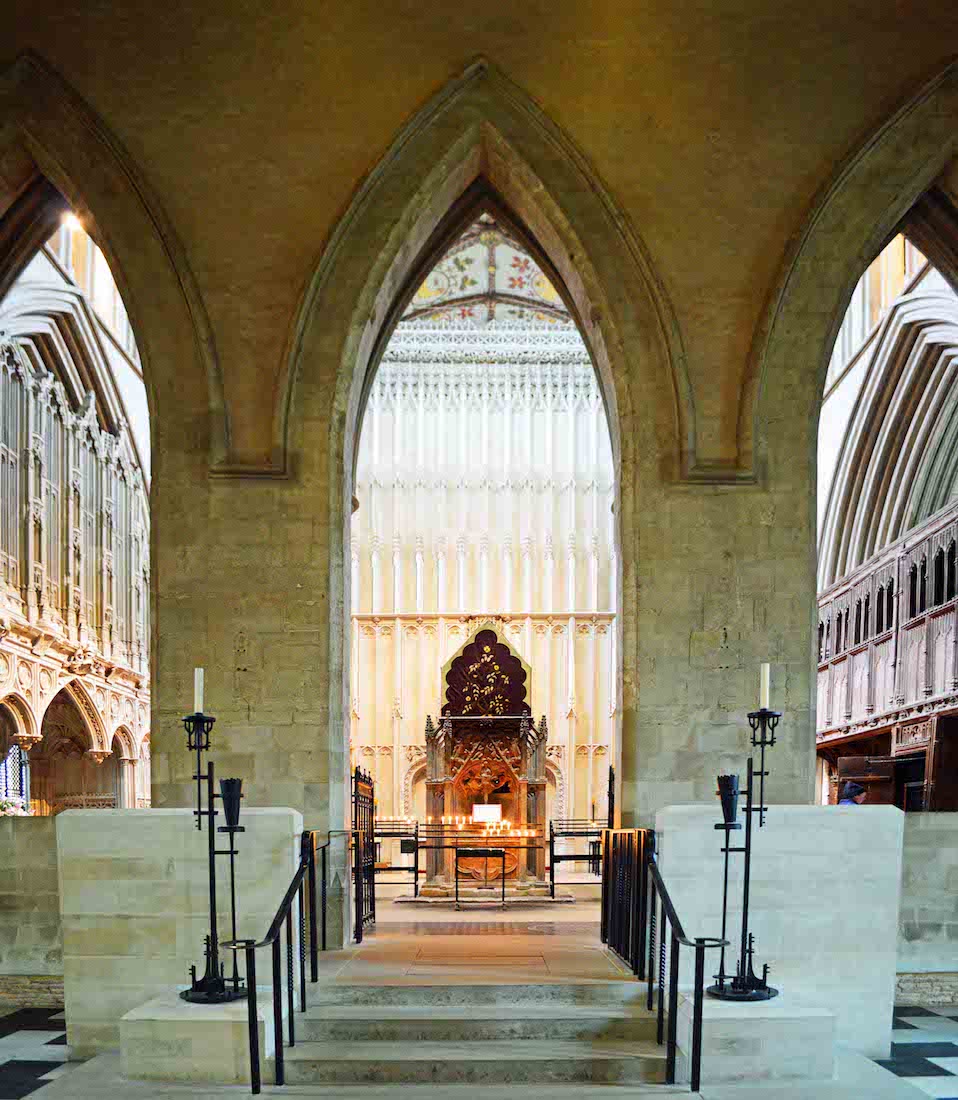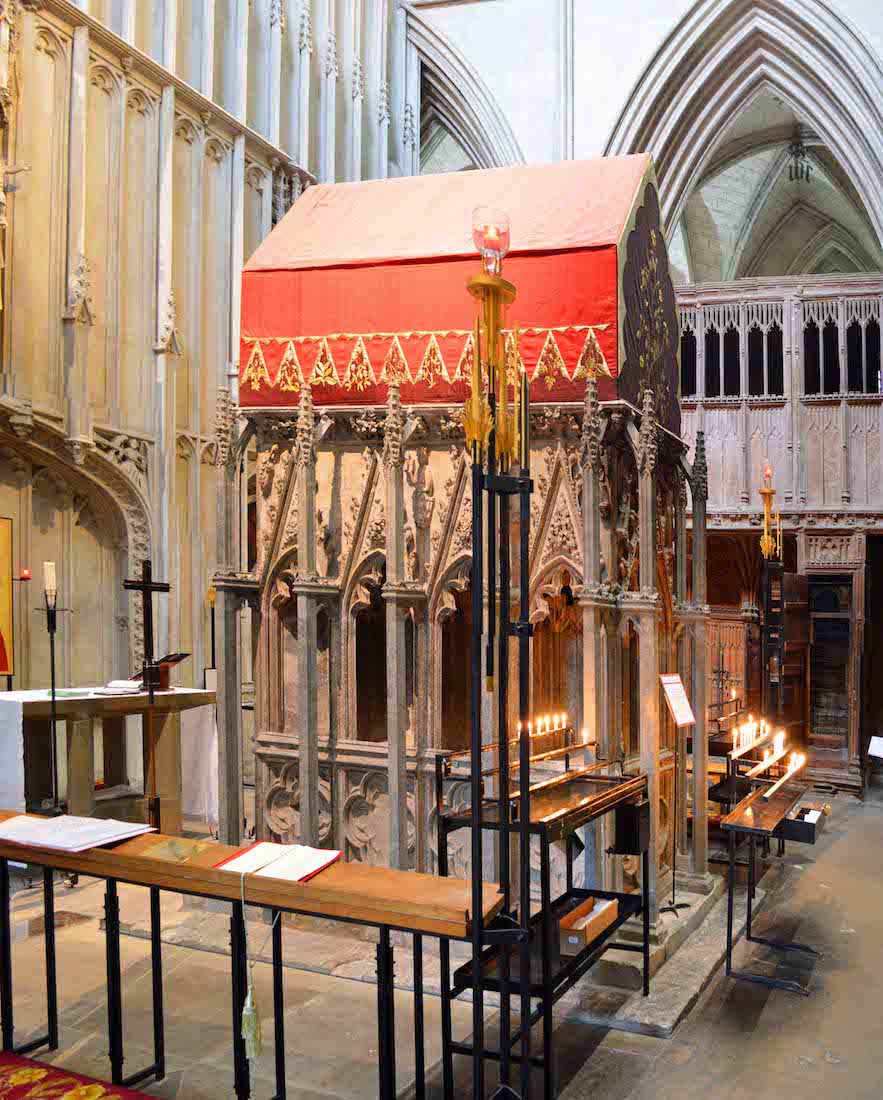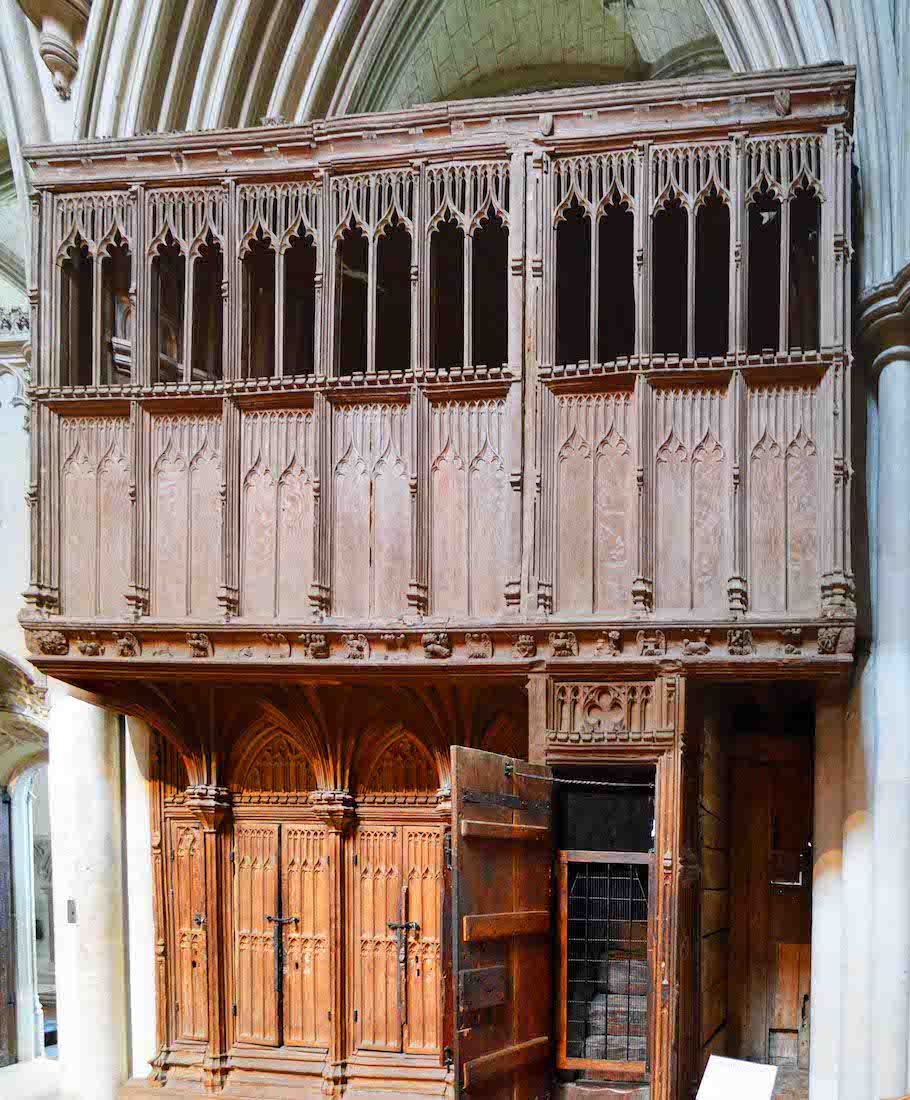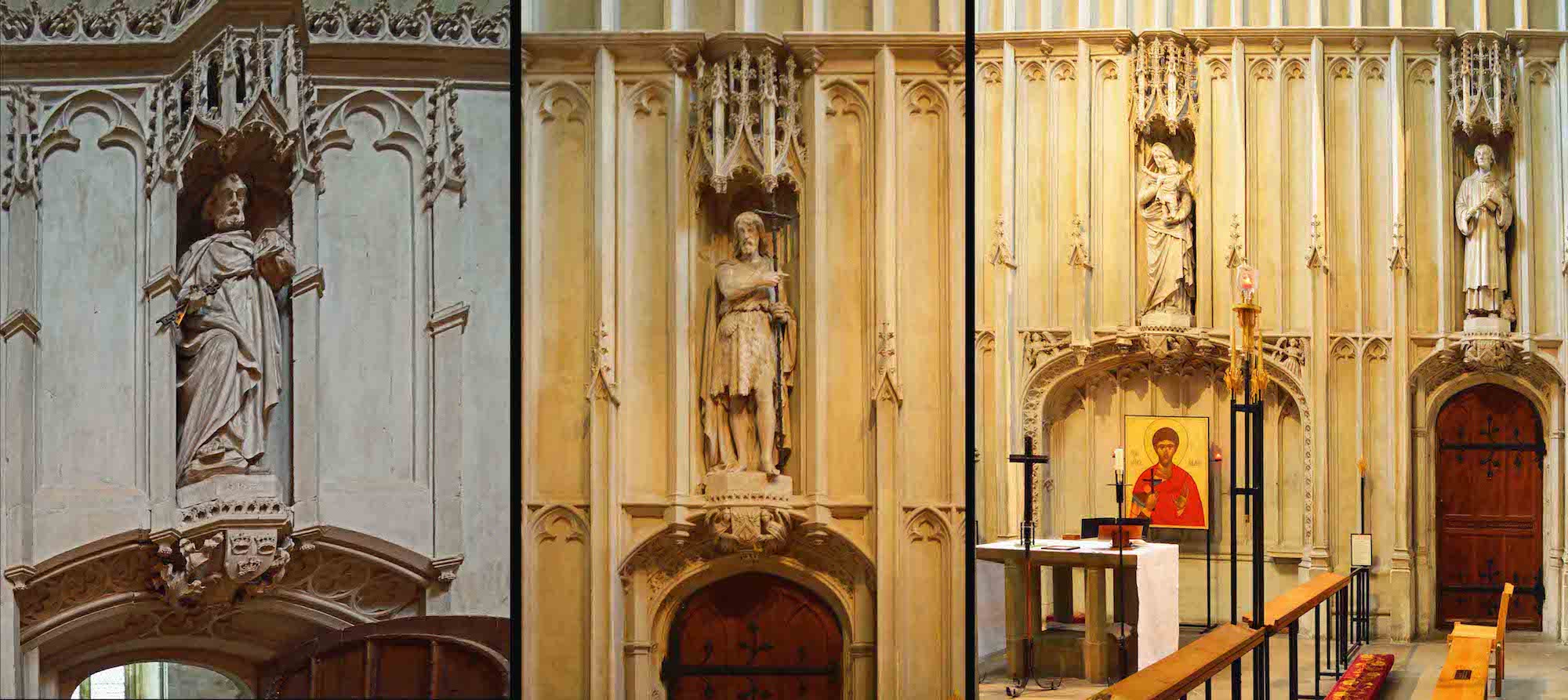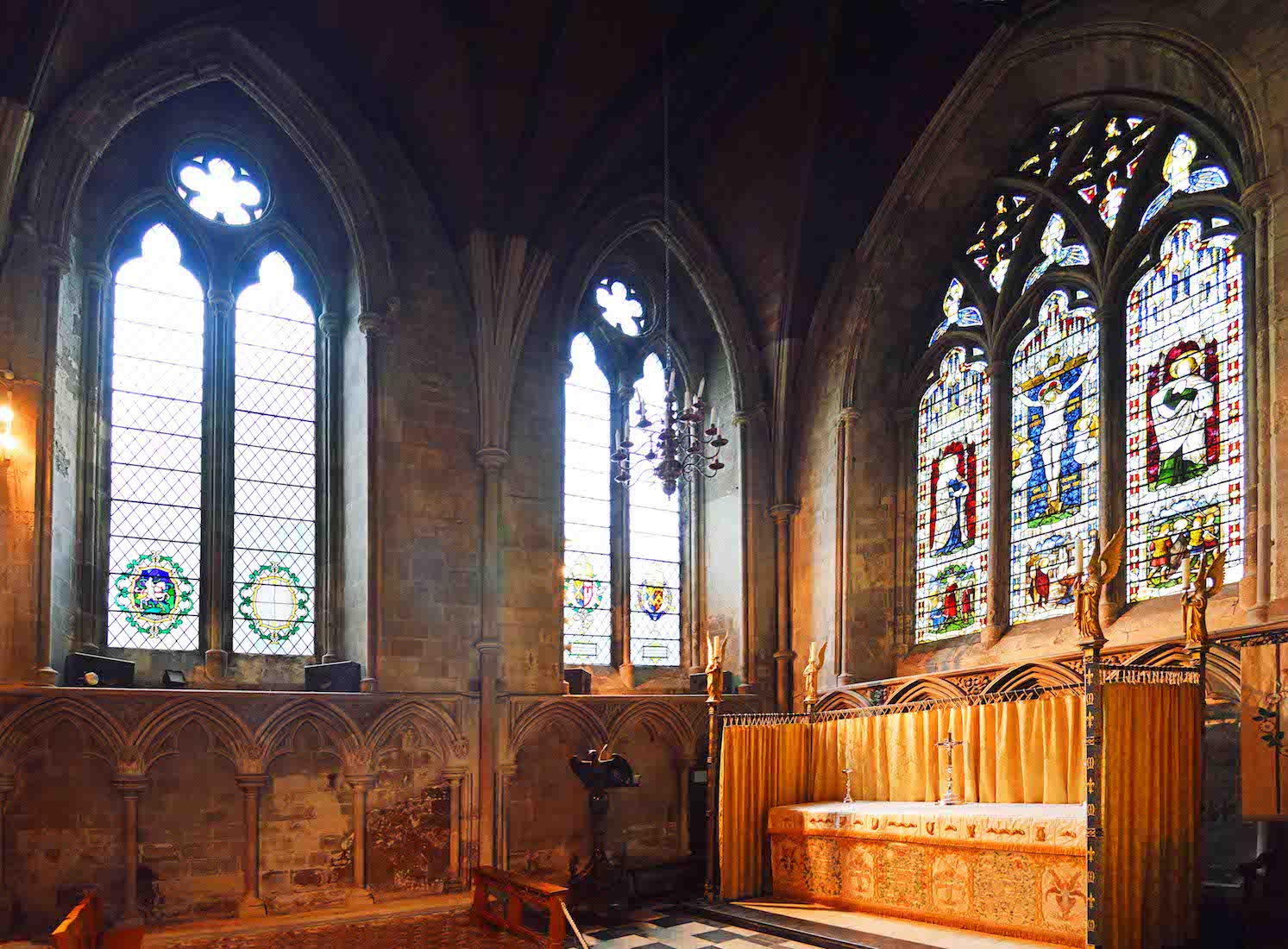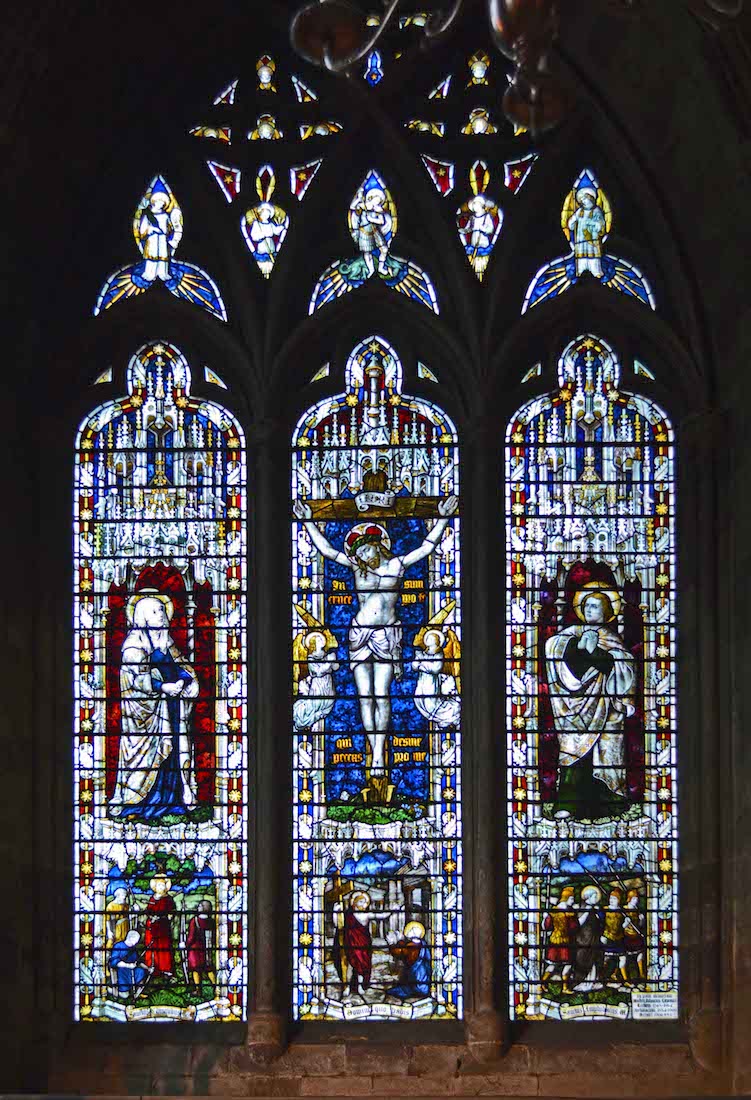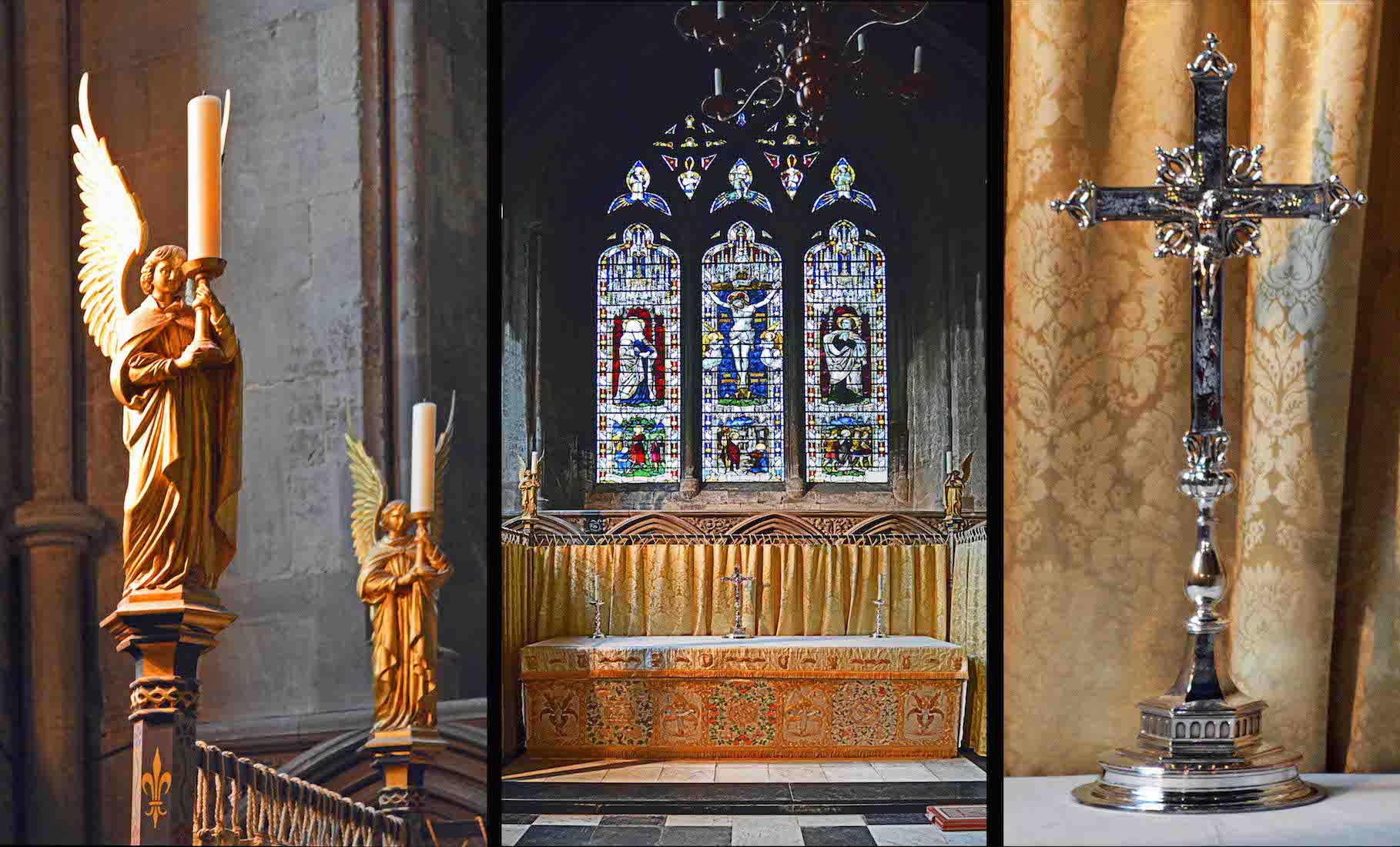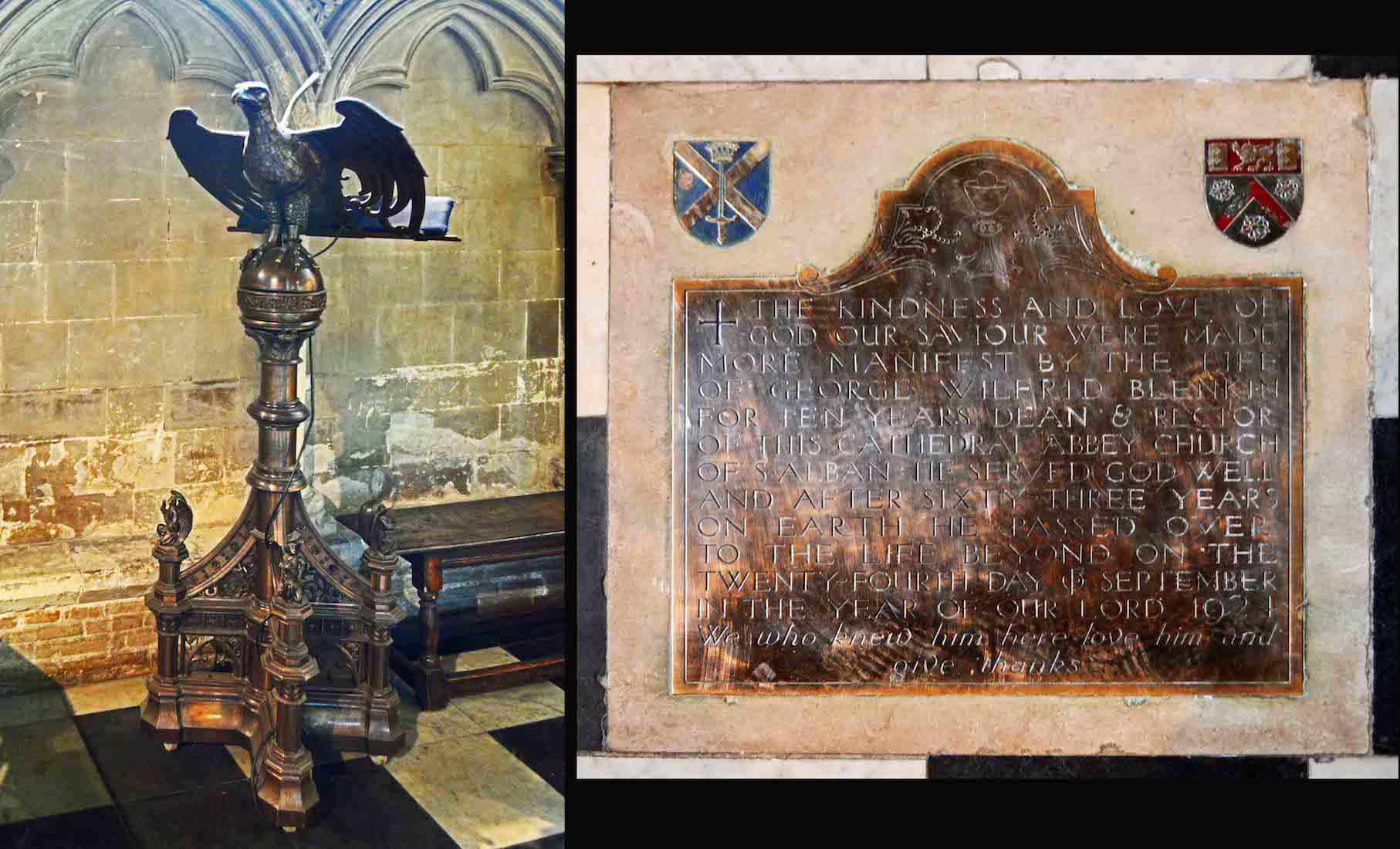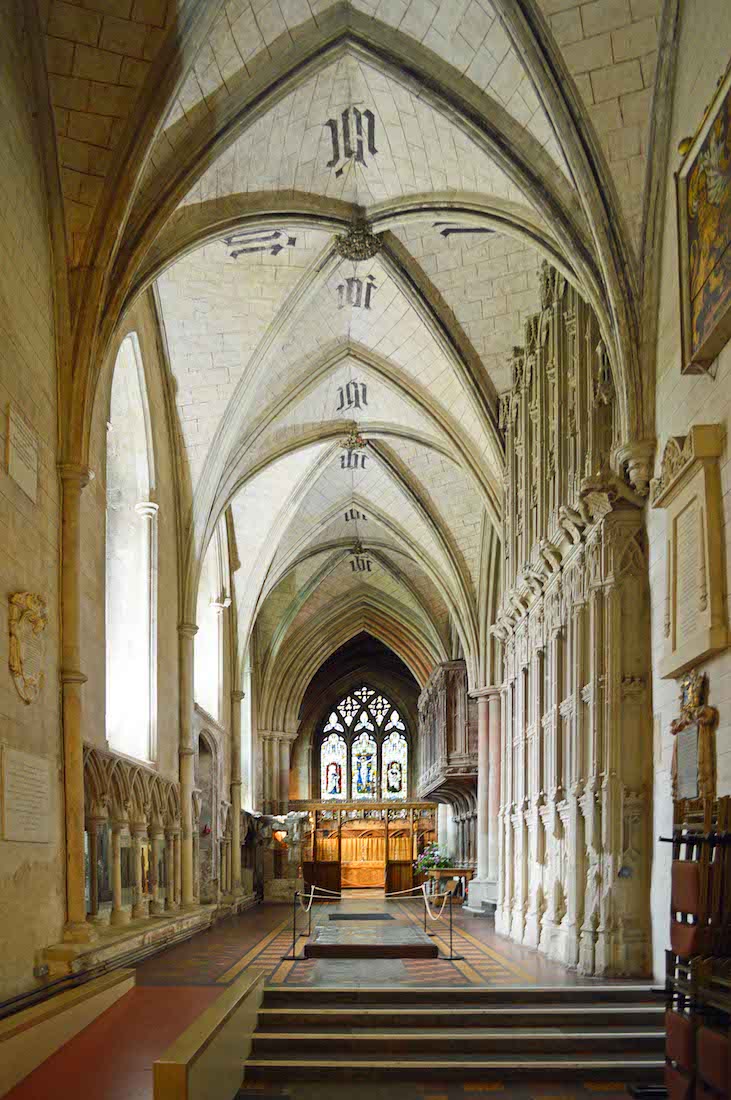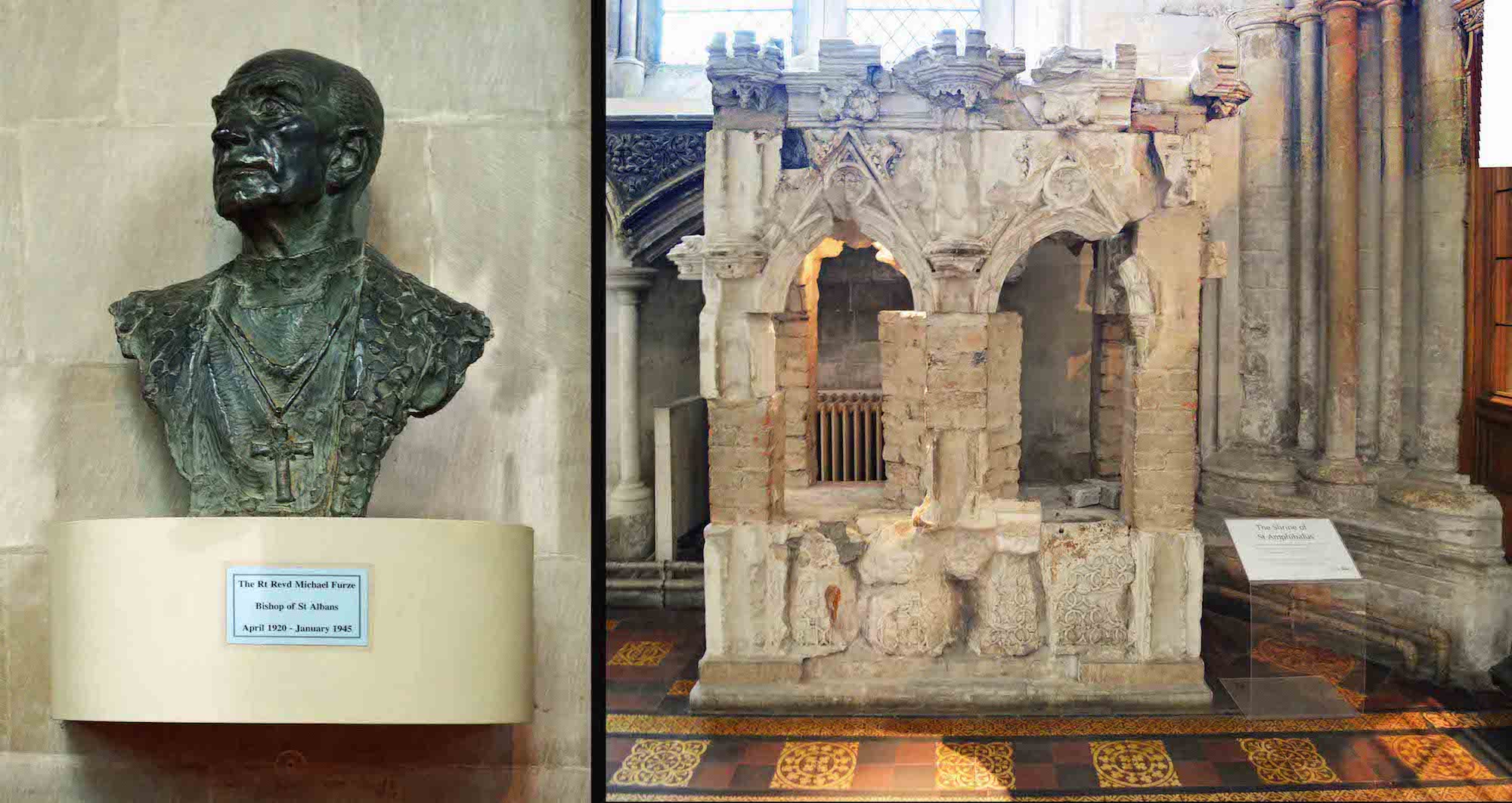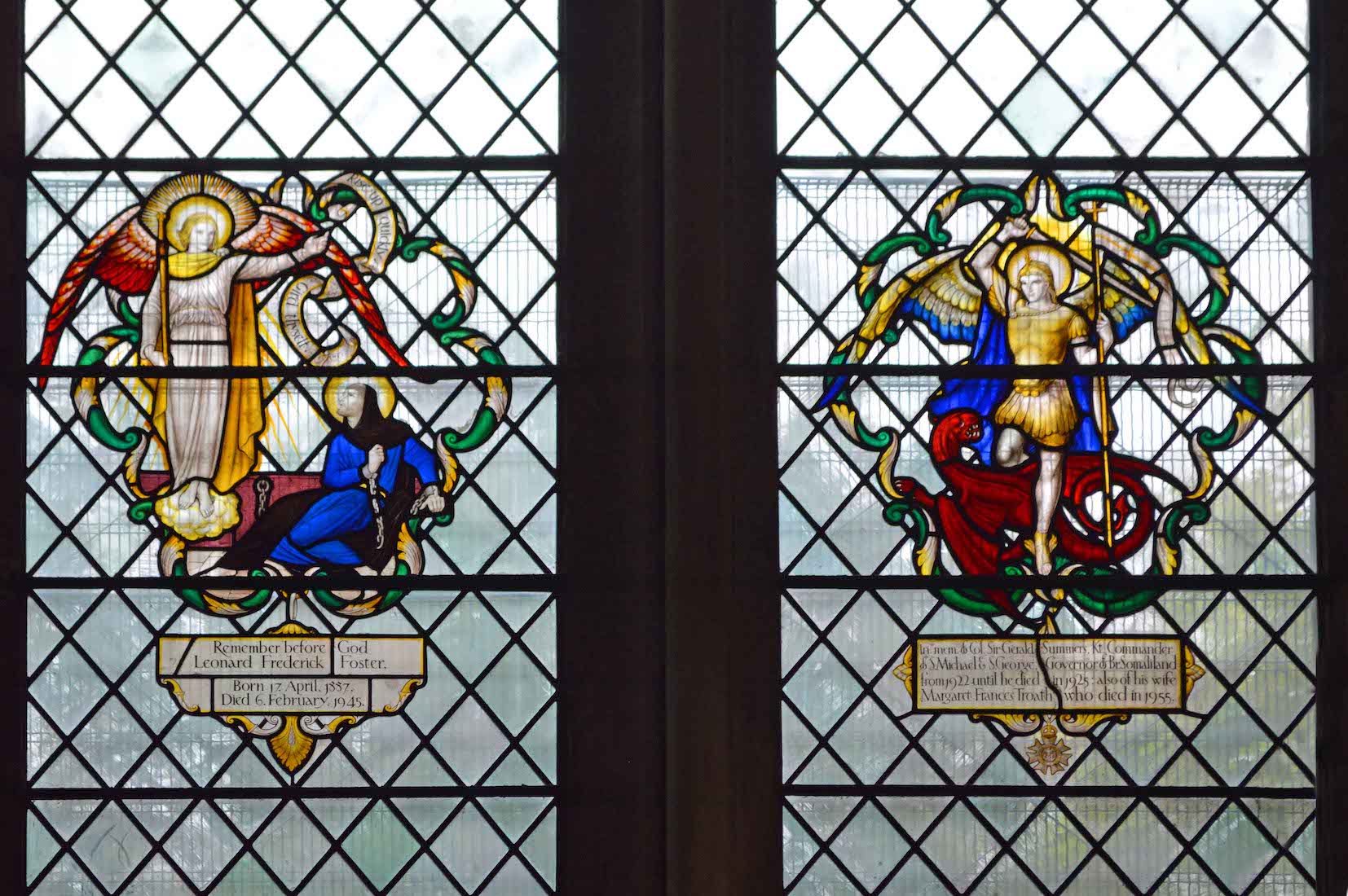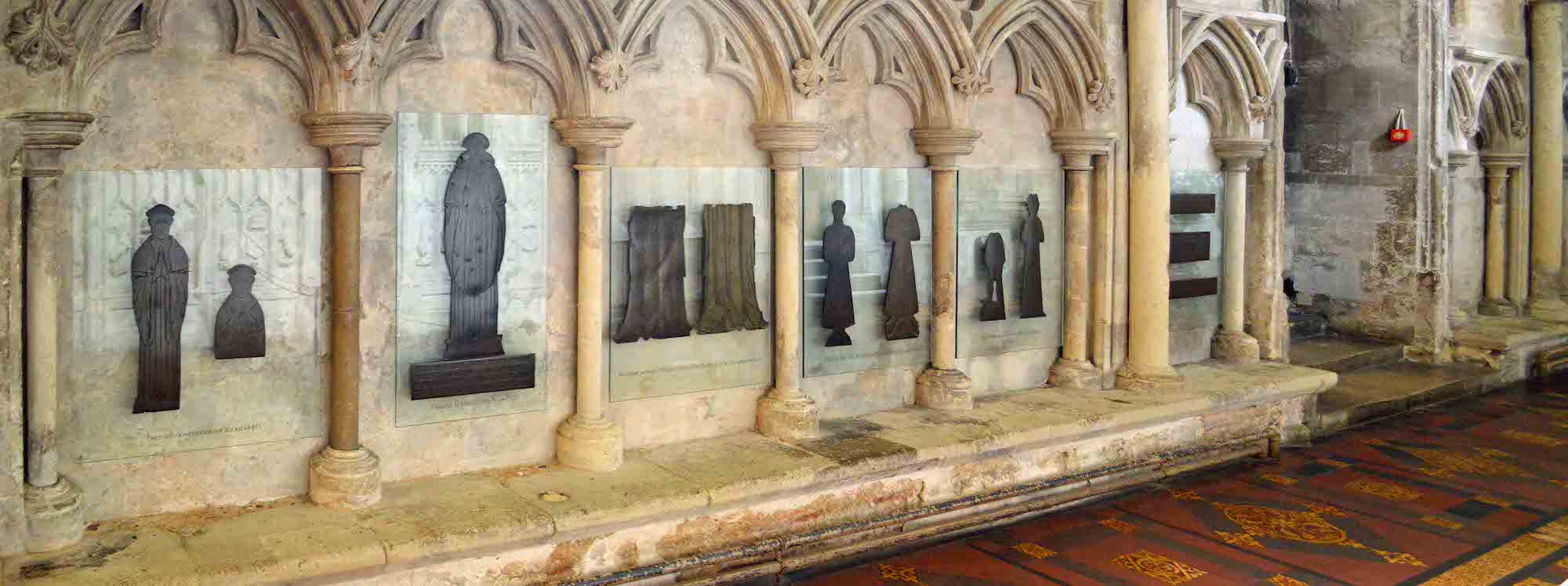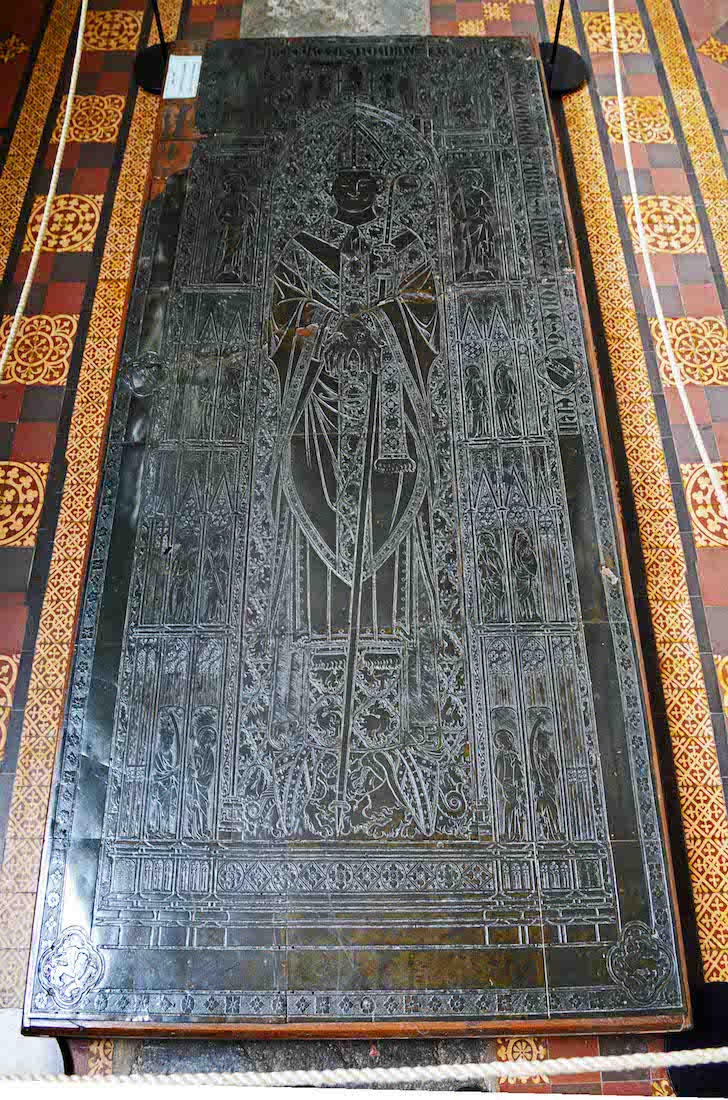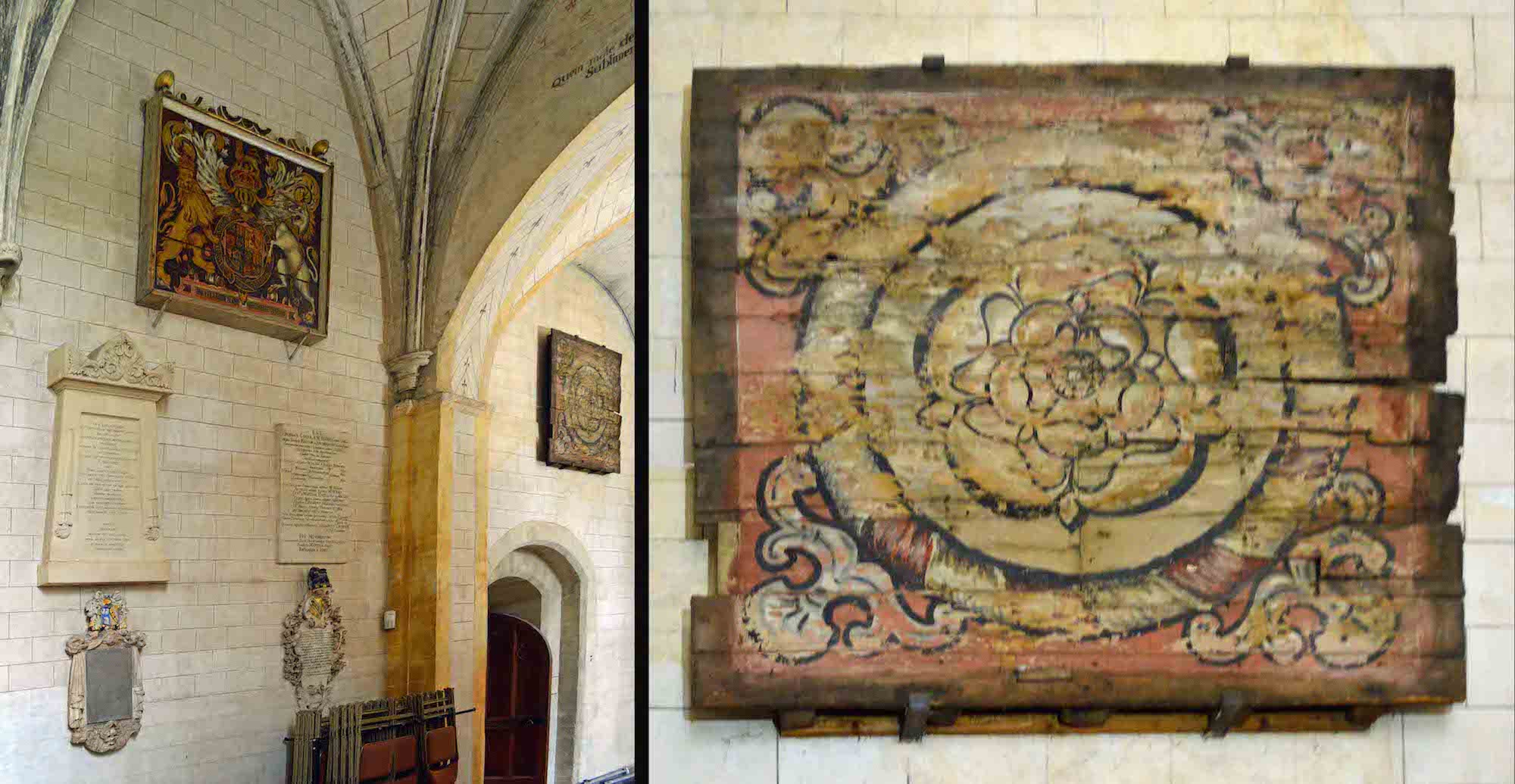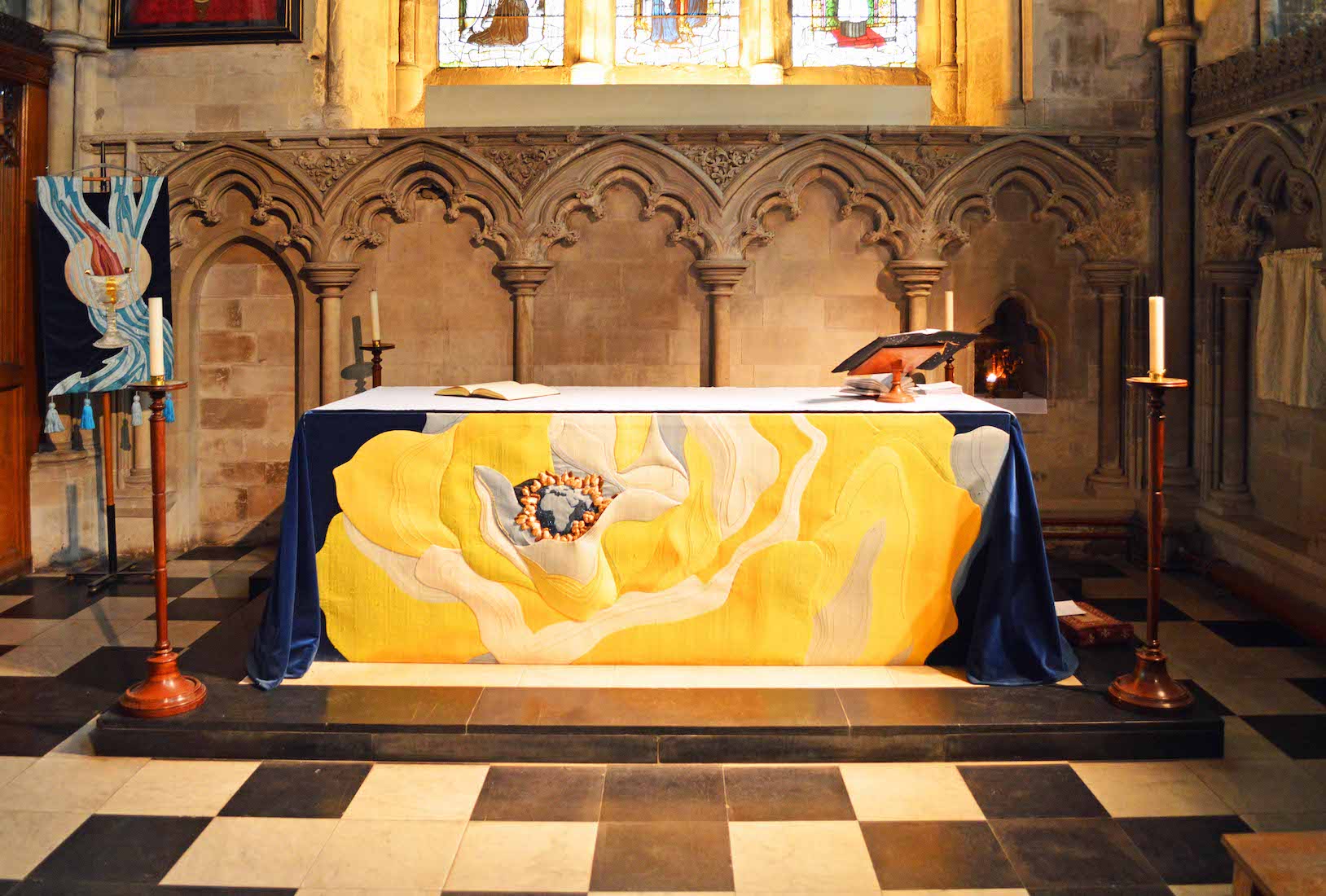
The altar cloth shows an English rose with a map of Africa at its centre. The banner at left is an interesting mix of fire and water themes – both cleansing agents. PLAN
63. LADY CHAPEL WINDOWS
These are the windows as seen from left to right. They are worthy of careful study as they depict a multitude of saints, Bible characters, Bible scenes and more – all helpfully described in Latin! In one window there is a picture of St Agnes with a sword through her throat ... .
64. LADY CHAPEL DETAILS
There is a lot of detailed decoration inside the Lady Chapel, for example around the windows. A more modern carved Madonna and Child stands to the left of the altar.
65. LADY CHAPEL ALTAR
The focus of the Lady Chapel is a simple altar bearing a silver cross, and four candlesticks.
66. LADY CHAPEL ALTAR CLOTH
The gold altar cloth is of striking design showing the Virgin Mary with the baby Jesus on her lap, and with an angel on either side.
67. TO ST ALBAN’S SHRINE
Directly West of the Lady Chapel is the Shrine Chapel of St Alban. As we have seen the death of St Alban at this location was the reason the Abbey was originally built. Certainly, this Chapel was the main destination of the early pilgrims.
69. WATCHING LOFT
Next to the Shrine is the oak Watching Loft. The Watchers sat in the upper chamber, keeping an eye on the pilgrims visiting the shrine. They also kept a close eye on the gold and jewels that decorated the shrine! This is the only surviving British example of a watching loft.
70. SHRINE FIGURES
Various figures watch over the Shrine from their wall niches. These are (from left): St Peter, St John the Baptist, the Virgin Mary and Jesus, and St Stephen. The icon was the gift of the Russian Orthodox congregation who worship in the Cathedral. It was ‘written’ by Michael Atavin-Rappaport in 1990.
72. PRESBYTERY WINDOW
This impressive window illustrates the crucifixion of Christ with Mary and John watching on. The three smaller scenes below show at left St (King) Edmund and at right St Amphibalus. The central panel has Jesus carrying his cross directing a disciple, and the text: Domine quo vadis (Lord where are you going?).
73. CHAPEL ALTAR
A silver crucifix and two silver candlesticks stand on the altar which is itself covered with an intricately designed altar cloth. The four angels keep watch..
74. LECTERN AND BRASS
The lectern has the traditional eagle standing on a globe, but is of an old design. There are four angels atop the cumbersome height adjustment mechanism. The brass plaque is in memory of George Wilfrid Blenkin, one time Dean of St Albans who died in 1924.
75. NORTH PRESBYTERY AISLE
As we walk from the far altar to the near steps we notice the decorated vaulting and the large floor brass. On the left is a shrine and a row of brasses. Of note on the right are the rear of the watching tower, the back of the Ramryge Chantry, and another painted panel.
76. BUST AND SHRINE
The bust is of the Rt Revd Michael Furze who was Bishop of St Albans from 1920 to 1945. The shrine is that of St Amphibalus whose remains were dicovered near St Albans In 1178. These were removed to the Abbey, where a shrine was constructed for the veneration of the relics.
77. AISLE WINDOWS
These attractive matching inserts are in memory of Leonard Frederick Foster (1887 – 1945), and Sir Gerald Summers who was Governor of British Somaliland from 1922 until he died in 1925, and his wife Margaret Frances Troath.
78. AISLE BRASSES
Along the North wall of the Presbytery Aisle is a set of mounted brasses. These give a brief overview of the Abbey beginning from 1440.
79. DE LA MARE BRASS
In the centre of the aisle is the Flemish brass of one of the most important Abbots, Thomas de la Mare, who was Abbot from 1343 to 1396. He is buried near the High Altar.
80. MEMORIALS AND CEILING PANEL
Moving further along the aisle in an Easterly direction we come to some memorial tablets, and another painted ceiling panel from the old Tower – this one depicting an English rose.


